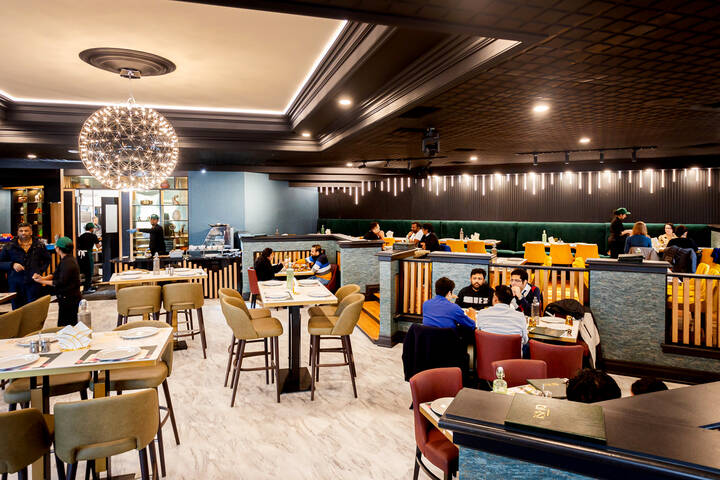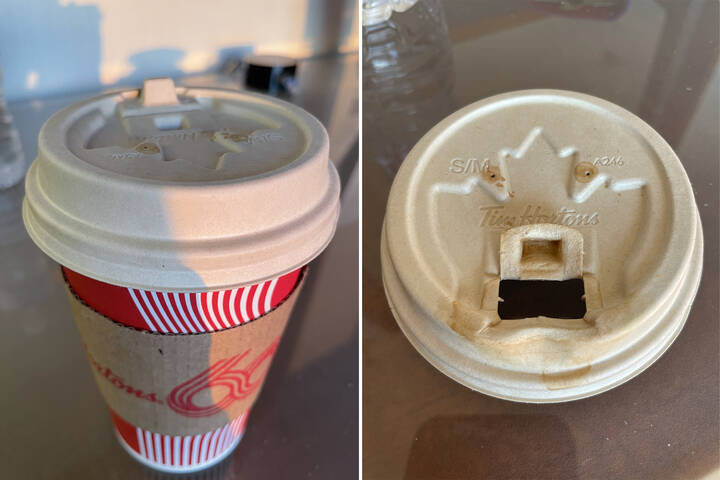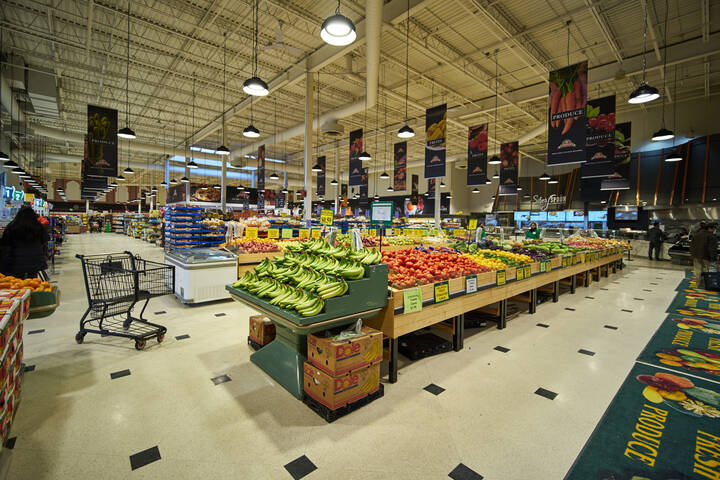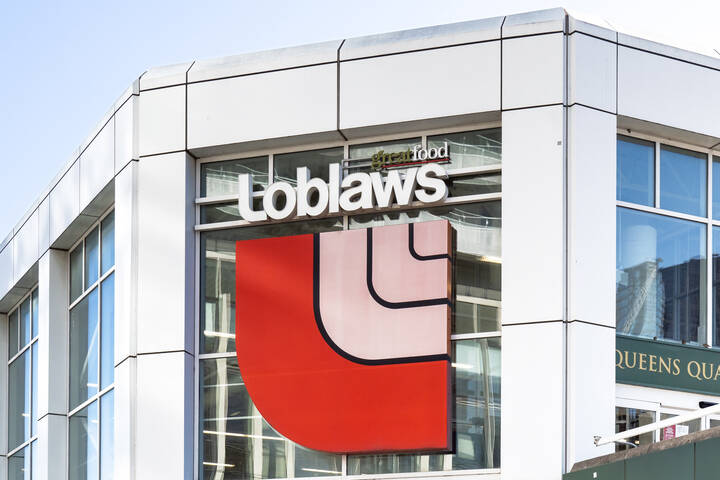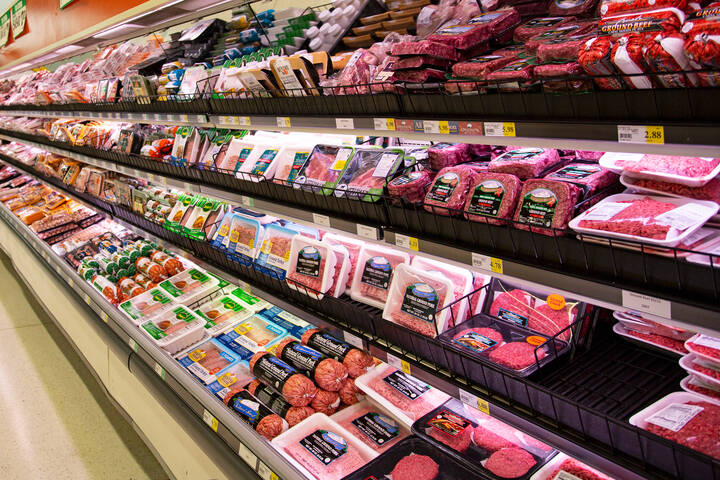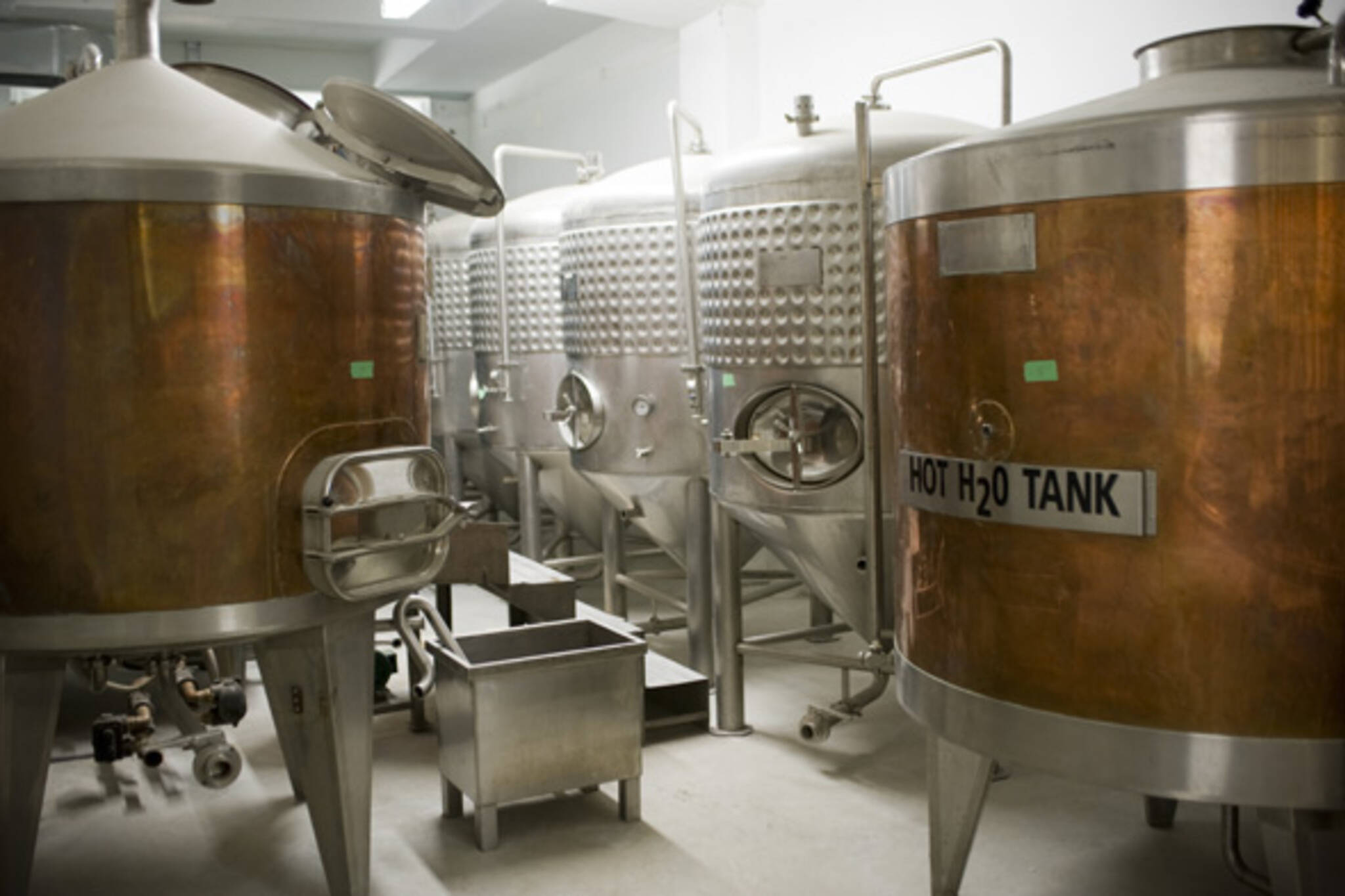
How hard is it to open a brewery in Toronto?
Toronto now lays claim to 10 fully operational microbreweries, and there are roughly half a dozen more in the planning stages. When you also consider the numerous contract brewers that call the city home, local breweries opening or trying to open second locations, the growing number of nano-breweries, and even the out of province outfits coming to town, it's not unrealistic to say that we're currently enjoying a boom in craft beer.
Along with such a boom comes a tendency for people to attempt to hop on the bandwagon. If you're a fan of craft beer, a homebrewer, or a--yech--marketing guru in Toronto, you've probably thought to yourself, "Hey, I could start a craft brewery!" Well, hold that thought. I talked with a handful of Toronto's craft brewers to learn more about just how hard it is to start a brewery and, well, it's not quite as easy as the current crop of local beermakers might be making it look.
For the purpose of this article, let's assume that you know how to make tasty beer. That's obviously your first step, so if you're not there yet and want to start a brewery, go find a different article first. But, assuming you are a talented brewer or have partnered with one and you're ready to get started, the first thing you're going to need is a lot of money.
"It is a capital intensive business," says Michael Gurr of the still-under-construction / contract brewing Kensington Brewing Company. "Our brewhouse was custom built for approximately $250,000 [...] and it was the biggest system we could fit into our building. You can go cheaper and you can go a heck of a lot more expensive. It all depends on your needs and your budget."
Your brewhouse is likely to be your biggest expense and, while ten years ago you may have been able to find some used equipment to suit your needs, the recent craft beer explosion (mainly in the US) means that used tanks are hard to come by (even if you go looking for used dairy equipment). So be prepared to shell out for an expensive made-to-order brewhouse.
But then of course, the brewhouse is just the beginning of your expenses. Gurr estimates that KBCo spent another $200K on their glycol chiller, steam boiler, piping installation, and construction. Want to add a bottling line? That could run you $30K-$65K, then you'll need to outlay dough for the kegs you're going to be filling, and, depending on the condition of the building you're leasing (because trust me, you're not buying a building big enough in Toronto), you'll likely have to make structural, electrical and plumbing upgrades, and you'll want to spend some money to make the place look nice enough that people will want to visit.
Then factor in legal fees, consulting fees, building permit fees, engineering fees, the cost of your vehicles, office equipment, security systems, and your rent, and then finally, factor in a handful of expenses you didn't even plan for. For most breweries the size of the one KBCo is building (about 15 hectolitres), it's a safe estimate that you probably won't be able to get up and running for much less than somewhere between $700,000 - $1 million.
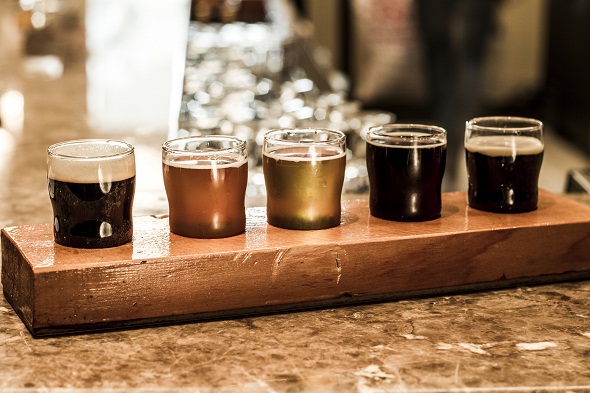
And Jason Fisher, owner of the Indie Alehouse says that's really just a starting point. "One million is a good ballpark for a small functional brewery to serve 10-20 accounts," but he estimates that costs quickly balloon if you want to get any bigger than that. "It'd probably cost $1.5 million for a small brewpub and $5 million for a larger production brewery capable of bottling and distribution on a decent scale."
And even if you have that kind of dough available, you're going to want to be sure you even have a little more, just in case. "Our budget has increased by more than 40 per cent over our original plan," says Mandie Murphy, the co-owner of the under-construction Left Field Brewery in East Toronto. "You will need more money than you expect, and then you'll need even more. If you exhaust all possible sources of funding in your initial plan, you may be in for some trouble. Always have a back-up plan for where you'll get more money when you need it, because chances are that you will."
Once you've got enough money to open your own brewery (or you think you do), that's when the real fun begins. If you've read anything about beer in Ontario, you probably already know that most processes related to our favourite beverage's sale are bureaucratic at best, so you might not be too surprised to learn that the production of beer isn't that much different: there is a considerable amount of red tape to wade through and permits and licences you'll need to acquire.

"Brewing aside," says Mike Clark, co-founder of Bellwoods Brewery, "you need to become an expert in building code, federal, provincial, and municipal regulatory frameworks, TSSA [Technical Standards & Safety Authority] industrial regulations, workplace safety, insurance, leasing and property rights, legal agreements of all types and local politics, for starters."
But, as it happens, there are people who can help you navigate the process.
"The staff at places like the AGCO and city clerk's office were generally amazing," Fisher says, adding, "No, really. They know the rules are often stupid, but as long we were professional with them they were amazing with us."
Murphy agrees that it was fairly straightforward process to start to build a brewery, but says that once you start trying to actually license the place, that's when things get tricky. "It's pretty convoluted," she says about licencing. "There are four different licenses that we'll need and we only have one of them right now, which is our Manufacturer's license. It took three months to get that license before we got started.
We are currently working on the other three which are the Excise license - our federal beer tax, a By The Glass license for our tap room which requires community council approval by way of a municipal resolution of support for our license, and Retail Store Authorization which requires us to write letters to all the churches, schools, public parks, playgrounds, community centers and libraries within a one kilometer radius of our brewery. They then have the opportunity to notify the AGCO of any objections prior to our opening."
With a little patience (and maybe a gift for filling out paperwork) you can navigate the red tape but, as with any business, it helps to know people who can help. "If you ever find a super helpful, knowledgeable bureaucrat," Fisher says, "treat them very, very well."
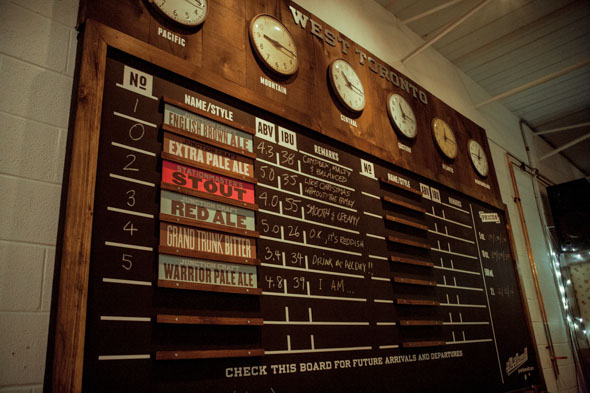
Doug Pengelly, co-founder of Junction Craft Brewery, likewise found it helpful to have someone to assist with the process. "Our local city councillor Frances Nunziata was really helpful," he says. "We needed a letter of recommendation from the city to open our taproom and retail store. She organized a community meeting, confirmed there were no objections, and brought it up at city council and everything went through without trouble."
Kensington Brewing Company found help in the form of a veteran property owner. "We have not had to deal directly with the City of Toronto," Gurr says. "That puts us in a pretty unique position as far as breweries are concerned. We've been fortunate to have an experienced ally in our landlord who has been able to navigate these waters on our behalf. That said, the project sat dormant for six months at one point as we waited for some amendments to be approved."
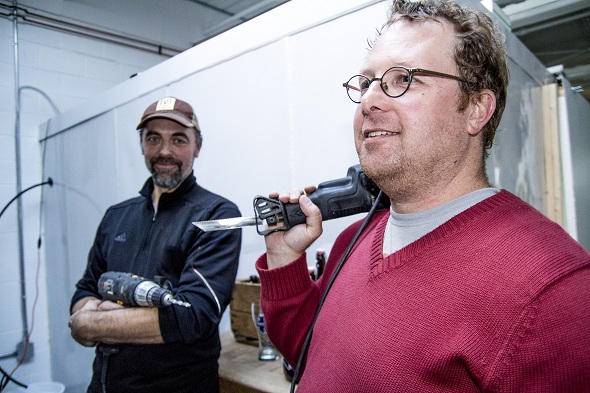
So now that you've procured funding and have started the process for getting the proper permits, then, of course, you actually have to build the place.
Here too, it helps to know people. Jordan Rainhard, founder of the soon to open Stockyards brewery, Rainhard Brewery, says that, unless you're ridiculously handy and willing to contribute a great deal of your time to building your brewery yourself, it helps to have someone capable of overseeing the actual construction for you. "My biggest misconception was that I could open my own place without the assistance of a General Contractor," he says.
"I am doing all the contracting myself, and with limited experience, this is proving difficult. I'm still working a full time job, and trying to coordinate the trades is almost impossible outside of standard business hours. Plus, as soon as you say you are opening a brewery, they assume you have more money than you do, and start upping their quotes for work. It's been tough to find the right tradesmen that will quote a fair price."
Jason Fisher was very hands on in the building of his own business and has a surprisingly zen approach to dealing with the inevitable delays of opening and constructing a brewery. "Any item can and will be delayed at some point," he explains. "So just try and make some progress every day. Figure out the most important thing that you can accomplish each day and work on that first."
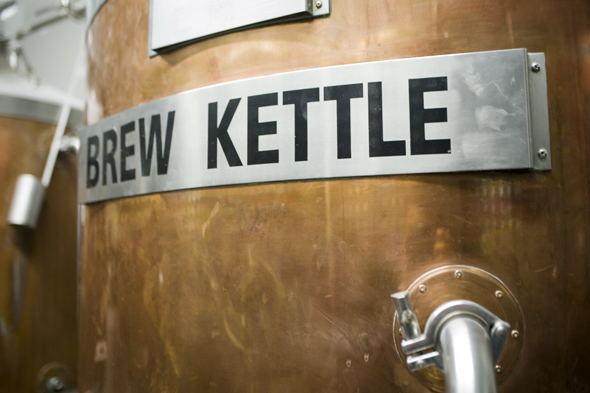
While building The Indie Alehouse, Fisher became so accustomed to setbacks that one day, when his boiler fell down the stairs, he says he barely even looked up. "The boiler falling down the stairs represented a potential $100,000 cost, several months further delay, and a huge pain," he says. "I just kept painting the table base I was working on, because that's what I could control that day."
So now that you've got the funding, you've begun to navigate the licensing process, and you've started construction, what more do you need?
Well, to put it plainly, passion.
Yes, it's a bit of a cheesy answer, but one that rings true in every conversation I've ever had with any successful brewer. Brewing is a slog. Brewers and brewery owners will tell you that owning a brewery isn't glamorous and the "cool" stuff, like marketing your product, designing your logos, choosing glassware, attending events, and actually drinking beer is probably less than 10% of the actual business of owning a brewery.
In addition to the setup (and then constant maintenance) of virtually all the things listed above, you're going to have to actually run a proper business and secure accounts to sell your beer--to say nothing of the fact that, hey, you actually have to have the time to make decent beer!
So in addition to having some business acumen, lots of funding, a knack for paperwork and politics, and construction know-how, you should really, really want to make beer for a living in order to put up with all the other shit that comes with it. If you don't or you're not really passionate about the production of beer, it's a pretty safe bet that your beer won't be that great.
And if your beer isn't that great, it's pretty likely your business won't succeed and, more importantly, you'll be putting a mediocre product out in an increasingly crowded market and taking up shelf space that could be used by someone who is passionate about beer.
So maybe even before you ask yourself if you could start a brewery, maybe ask yourself if you should.
Ben Johnson also writes about beer over on Ben's Beer Blog. Follow him on twitter @Ben_T_Johnson
Latest Videos
Latest Videos
Join the conversation Load comments

